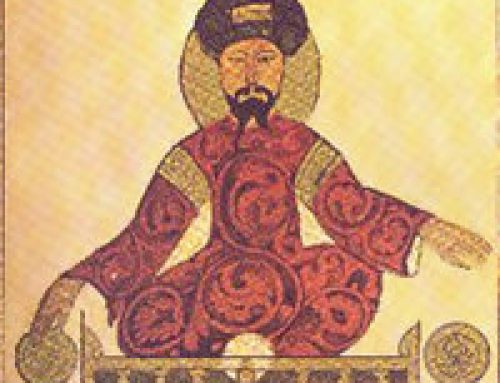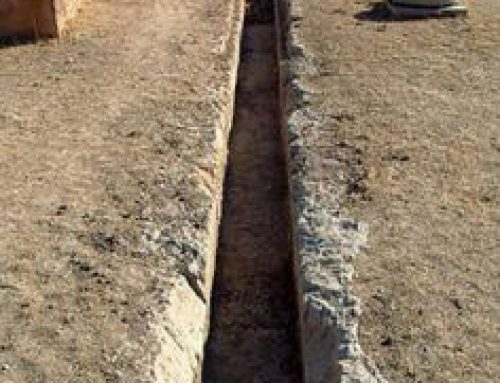
Earliest known dice (Iran, ca. 2600 BC) See that the six is already opposite the one, as on modern dice? But check out this Harappan die.
The people of West Asia really liked gambling games. The earliest dice in the world are from a backgammon set from ancient Persia (modern Iran), from about 3000 BC. Backgammon probably came from even earlier games like the African game Senet.
The Greek historian Herodotus describes how the people of Lydia got through a famine about 600 BC in this way:
For many years, there was not enough to eat in Lydia (in modern Turkey), because of bad weather and not enough rain. Now the Lydians liked gambling a lot, and so they decided that to save their food they would only eat on even days. On odd days, to take their mind off how hungry they were, they would play dice all day, and place bets. Herodotus says that the Lydians lived this way for several years (Herodotus is writing in the 400s BC).
Now this is just a story. The Lydians probably never really tried such a silly plan. But it may show that the Greeks thought of the Lydians as people who really enjoyed gambling with dice.

Assyrian men swimming (Nimrud palace, ca. 860 BC, now in British Museum, photo credit Brian McMorrow)
West Asian kids liked more active games too: they liked swimming and running races. People blew up leather bags to help themselves float. The man on the right is doing a crawl stroke on his own, though.
A little later on, around 100 AD, the Parthians were known for their horsemanship, and they played many games which were contests of skill, to see who was the best at riding horses, at shooting arrows at a target, and at throwing spears. Horse races, and betting on horse races, were very popular. At the same time, the Romans introduced Roman games to the western part of West Asia.
A project to make a backgammon board
Medieval Islamic Games
Bibliography and further reading about West Asian games:
Find Out About Mesopotamia: What Life Was Like in Ancient Sumer, Babylon and Assyria, by Lorna Oakes (2004).
Everyday Life in Ancient Mesopotamia, by Jean Bottero and others (2001).
Daily Life in Ancient Mesopotamia, by Karen Rhea Nemet-Nejat (2002).




